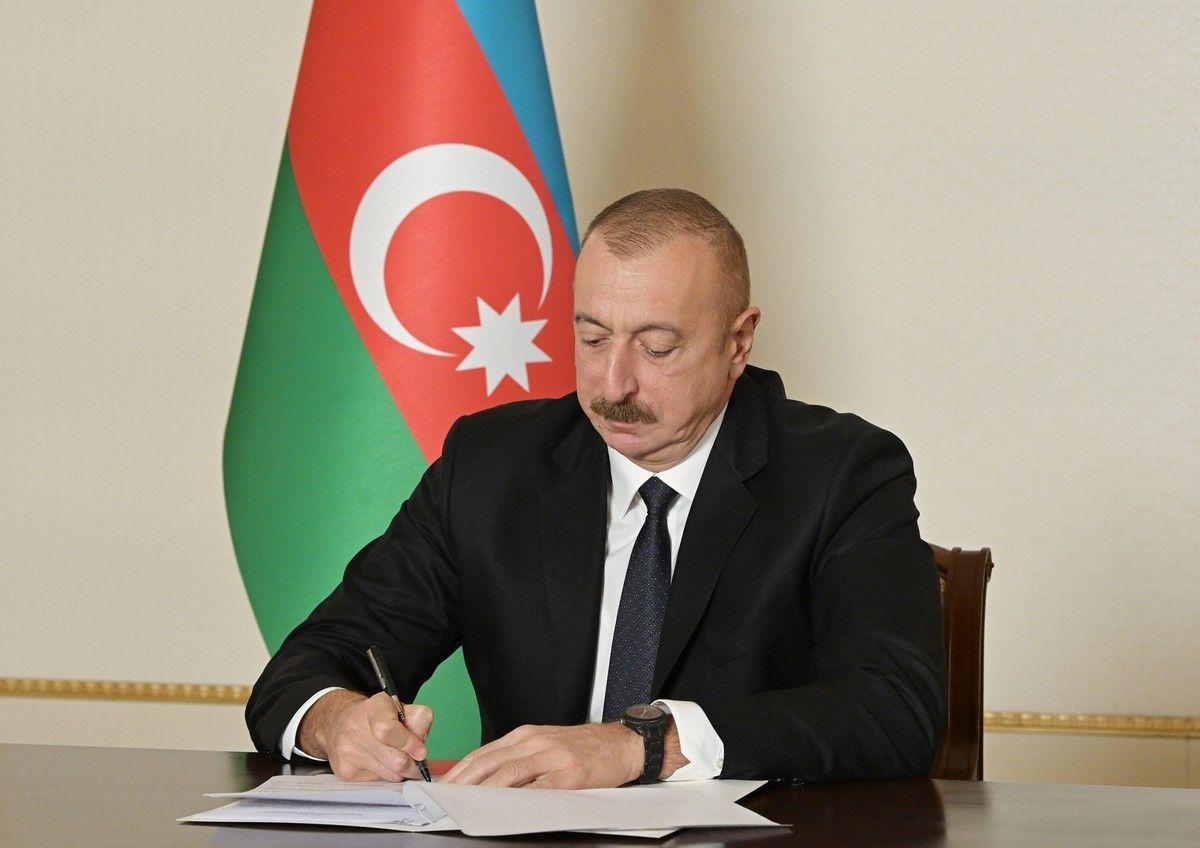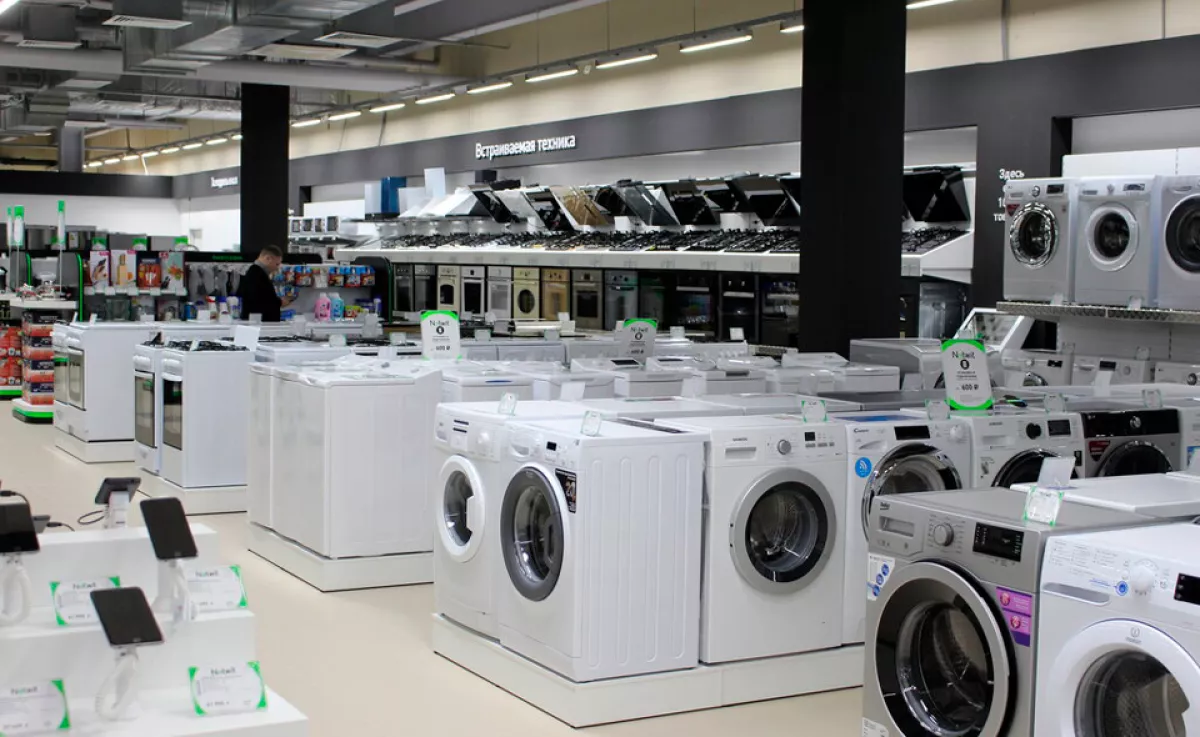Protection of Azerbaijani consumers' rights Government strengthens control
Recently, Azerbaijan has taken significant steps to enhance the fight against unfair competition and monopolies, and to protect consumer rights. At the end of last year, the long-awaited Competition Code (CC) was adopted and came into effect in July of this year.
A logical continuation of these efforts is the presidential decree published on August 27 by Azerbaijani President Ilham Aliyev, "On Additional Measures to Improve Management in the Field of Antimonopoly and the Consumer Market Control." According to the document, the State Service for Antimonopoly and Consumer Market Control will be restructured into the State Agency for Antimonopoly and Consumer Market Control, under the administration of the President.
A logical continuation of these efforts is the presidential decree published on August 27 by Azerbaijani President Ilham Aliyev, "On Additional Measures to Improve Management in the Field of Antimonopoly Control and Supervision of the Consumer Market." According to the document, the State Service for Antimonopoly Control and Supervision of the Consumer Market will be restructured into the State Agency for Antimonopoly Control and Supervision of the Consumer Market, under the administration of the President.

The main goal of recent reforms in antimonopoly legislation is to create conditions for free competition in Azerbaijan through effective regulation of various sectors of the economy and the market as a whole. These measures aim to enhance the republic's investment attractiveness, attract international capital, and stimulate domestic businesses to modernize their enterprises, adopt advanced technologies and innovations, and increase the export of non-oil products, thereby improving employment levels.
Ultimately, the fight against monopolies indirectly helps to reduce retail prices and improve the quality of goods and services. Overall, global experience shows that having free competition in a country is one of the most effective market mechanisms to optimize the consumer market and protect citizens' interests. In a stable and transparent competitive environment, the need for strict market control is minimized, and the process of regulating the business environment by government agencies is simplified.
Indeed, it was precisely these goals that guided the development of the Competition Code, which consists of 12 chapters and 84 articles, incorporating advanced international practices. This includes the integration of regulatory practices from the relevant legislation of Türkiye, the United States, Austria, Germany, Latvia, Lithuania, Hungary, and the Czech Republic. Of course, the specific characteristics of the local market were also taken into account in the development of the Code's articles.
Clearly, that achieving all the set goals solely through the adoption of the new Competition Code is a formidable task. Liberalizing the local market, enhancing competition, and freeing the country's economy from the dominance of cartel structures (especially in foreign trade) is a long-term endeavor that requires coordinated efforts in a public-private partnership format. It is evident that the successful implementation of the updated legislative framework cannot be achieved without subsequent institutionalization—creating an effective new administration mechanism, implementing various digital control and statistical mechanisms, and so on.
The presidential decree "On Additional Measures to Improve Management in the Field of Antimonopoly Control and Supervision of the Consumer Market" is aimed at addressing these tasks. According to the decree, the existing antimonopoly service, which operated within the Ministry of Economy, will be transformed into the State Agency for Antimonopoly Control and Supervision of the Consumer Market under the President of Azerbaijan. This move clearly signifies an elevation in the status of the antimonopoly authority, whose upcoming tasks and activities will now be directly overseen by the President.
The document also outlines the functions of the new State Agency: it will be responsible for state control and regulation in the areas of antimonopoly supervision, unfair competition, public procurement, and advertising (excluding outdoor advertising). Additionally, this central executive authority will oversee standardization, metrology, technical regulation, conformity assessment, accreditation, quality management, consumer protection, and market supervision.
In this context, the Cabinet of Ministers of Azerbaijan has been tasked with preparing and presenting to the President proposals regarding the draft regulations, structure, and staffing of the new State Agency, as well as proposals for aligning regulatory acts with the creation of the new structure. The Cabinet is also responsible for transferring state property and residual funding from the former antimonopoly service to the new Agency, and addressing other issues arising from the decree.
Until these steps are implemented, the new Agency will continue to operate under the existing norms of the former service. The same applies to the regional branches of the former service and other subordinate agencies not included in its structure.
Thus, the new State Agency will gain expanded powers and a broader set of tools to fully implement the provisions of the Competition Code, improving antimonopoly oversight and control and facilitating a shift from static to dynamic market regulation. Notably, along with the establishment of this updated antimonopoly administrative body, Azerbaijan is set to undertake several other steps to optimize activities in this area.
In particular, a National Action Plan for 2024–2026 has been developed, aimed at expanding the competitive environment and preventing monopolistic practices. This document is currently under government review, and its adoption is imminent. The National Plan includes numerous advantages and effective mechanisms, including commitments and tasks for all state regulatory bodies to promote fair competition principles and prevent anti-competitive practices, with specific deadlines for their implementation.
Additionally, the development of a Competitiveness Index is underway, and a corresponding national competition map will be created. This open digital platform will provide information on market structure and participants across all regions of the country, including data on market share and production. This tool will enable more effective application of competition legislation, prevent violations, and enhance the business climate in Azerbaijan.

The process of digitalizing the State Agency's mechanisms includes further development of the agency’s electronic resources, including optimizing the consumer protection system and creating a quality portal. This system will provide a comprehensive digital format for consumer protection mechanisms and will cover competition regulation, oversight, report generation, and responses to all inquiries, all in electronic format. It was recently reported that the development of the electronic competition system has been technically completed, and this tool is planned to be put into operation following the adoption of the relevant regulatory framework.
The implementation of these plans is a matter of the near future, but for now, the antimonopoly authority continues to operate as usual. In the first half of the current year, the State Service issued mandatory instructions to five market entities, applying financial sanctions totaling 189,700 manats ($111,588). Through the agency's efforts during the reporting period, 13 market entities accused of unfair competition voluntarily ceased the illegal use of another market participant's trademark, while 20 market entities addressed several violations of advertising legislation related to the promotion of various goods and services.
In August, the antimonopoly authority began investigations into potential violations of the Competition Code in the broadband internet services market. Specifically, this involves the recent increase in minimum tariffs for internet services by natural monopoly entities and several private providers. For instance, fiber-optic internet services with a minimum tariff of 18 manats ($10) per month for a speed of 40 Mbps were replaced by a tariff of 25 manats ($14) per month for a speed of 100 Mbps. Preliminary studies of the communications market indicate violations of the "Law on Natural Monopolies" and the first signs that coordinated actions among providers or cartel-like relationships may be occurring in this sector.

The State Service has recently identified several violations in major retail chains in the country engaged in selling electronics and household appliances. Thanks to the measures taken, terms that restricted consumers' rights were removed from sales contracts and warranty obligations, and violations of exchange or return rules for sold goods were prevented.








